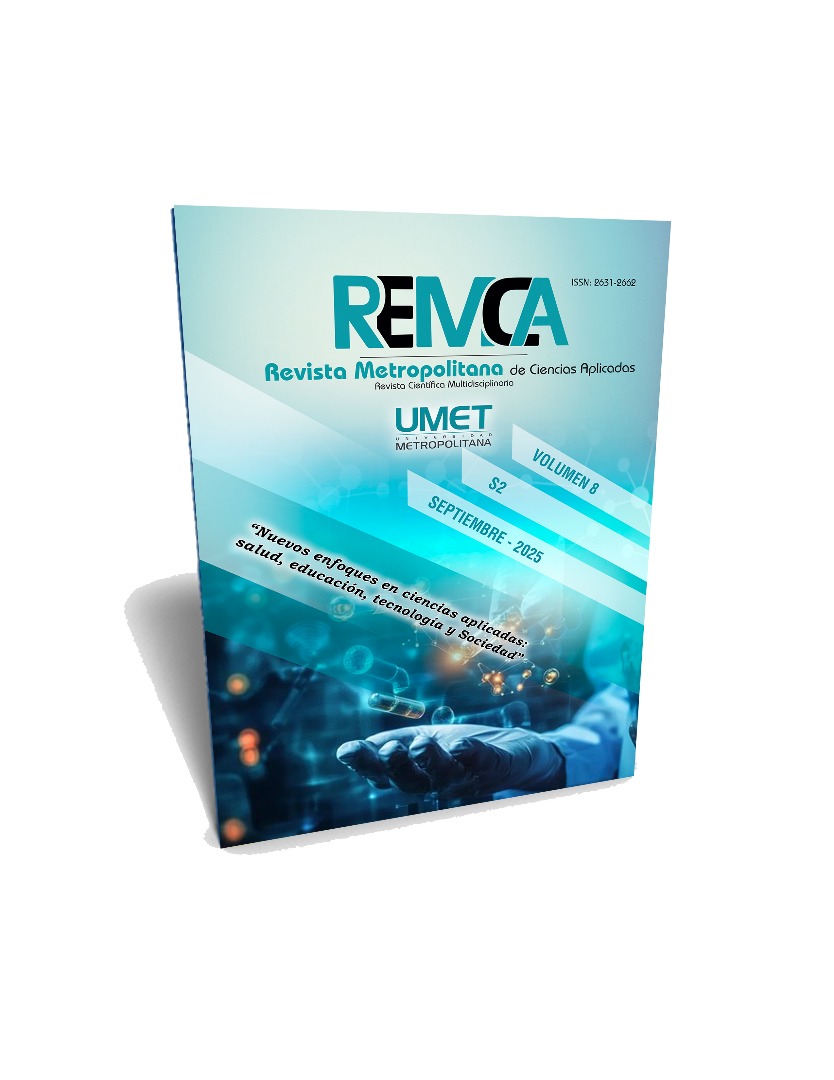Treatment of arrhythmias in patients with chronic kidney disease: recent pharmacological guidelines
DOI:
https://doi.org/10.62452/4rwh3h49Abstract
The occurrence of arrhythmias in patients with chronic kidney disease represented a significant clinical challenge due to their high prevalence and impact on cardiovascular morbidity and mortality. The aim of this research was to analyze the relationship between both conditions, describe the underlying pathophysiological mechanisms, and identify evidence-based therapeutic strategies. A systematic review was conducted following PRISMA guidelines, based on the analysis of specialized scientific literature. The findings revealed a higher prevalence of arrhythmias in advanced stages of kidney disease and in patients undergoing hemodialysis, with atrial fibrillation being the most frequent. Electrolyte imbalances, chronic inflammation, and autonomic dysfunction were identified as key factors in the onset of arrhythmias. Pharmacological management required individualized adjustments due to the potential toxicity of certain medications in patients with impaired renal function. It was concluded that the relationship between chronic kidney disease and arrhythmias was bidirectional, highlighting the need for a comprehensive approach to slow disease progression and improve cardiovascular outcomes. As a recommendation, the development of specific clinical guidelines and early monitoring strategies was proposed to optimize care for this vulnerable population.
Downloads
References
Almenar Bonet, L., & González-Franco, Á. (2022). Consenso sobre el manejo de la hiperpotasemia en pacientes con insuficiencia cardíaca: recomendaciones de la SEC-SEMI. Revista Clínica Española, 222(4), 235–240. https://www.sciencedirect.com/science/article/pii/S0014256521000175
Barquero Morales, W. G. (2022). Analisis de Prisma como Metodología para Revisión Sistemática: una Aproximación General. Saúde Em Redes, 8(sup1), 339-360. https://doi.org/10.18310/2446-4813.2022v8nsup1p339-360
Batista Causa, L. G., Ortiz Sánchez, Y., Batista Causa, L. de la C., & Bárzaga Pérez, O. B. (2024). Factores pronósticos de muerte en pacientes con enfermedad renal crónica en hemodiálisis. Multimed, 28. http://scielo.sld.cu/scielo.php?pid=S1028-48182024000100011&script=sci_abstract
Bohórquez Rivero, J. de J., Arrieta Restom, J., Pineda Paternina, M., Cantillo García, K., & Montoya Jaramillo, M. M. (2020). Concepciones diagnósticas y manejo de hiperkalemia en el paciente con enfermedad renal crónica: Revisión a propósito de un caso clínico. Archivos de Medicina, 16(2). https://dialnet.unirioja.es/descarga/articulo/7467864.pdf
Ciapponi, A. (2021). La declaración PRISMA 2020: Una guía actualizada para reportar revisiones sistemáticas. Evidencia, Actualización en la Práctica Ambulatoria, 24(3), e002139. https://www.evidencia.org.ar/index.php/Evidencia/article/download/6960/4585
Da Cruz Costa, A., Levi Franco, A. C., Ferreira Pereira, R., Vasconcelos Gonçalves, M. V., & Sant Anna Nubile, E. (2024). Arritmias cardíacas: Diagnóstico, tratamento e prevenção. Brazilian Journal of Implantology and Health Sciences, 6(2), 348–360. https://bjihs.emnuvens.com.br/bjihs/article/view/1374
Fernández Rodríguez, R., Arenas Gutiérrez, R., Perdomo González, G., García Hernández, K. C., & Vilches Juanes, T. (2022). Hipermedia Cardiología II para la enseñanza-aprendizaje de las arritmias cardiacas en las ciencias médicas. Revista Cubana de Informática Médica, 14(2). http://scielo.sld.cu/scielo.php?pid=S1684-18592022000200016&script=sci_arttext
García Fernández, M. Á., & Gómez de Diego, J. J. (2020). COVID-19 y afectación cardíaca. Revista Chilena de Anestesia, 49, 397–400. https://www.enfermeriaaps.com/portal/wp-content/uploads/2020/06/Covid-19-y-afectaci%C3%B3n-cardiaca-Rev-Chil-Anest-2020.pdf
Minozzi, S., Cinquini, M., Gianola, S., Gonzalez-Lorenzo, M., & Banzi, R. (2020). The revised Cochrane risk of bias tool for randomized trials (RoB 2) showed low interrater reliability and challenges in its application. Journal of Clinical Epidemiology, 126, 37–44. https://www.sciencedirect.com/science/article/pii/S0895435620301815
Porta-Sánchez, A., Casado, R., Salvador, O., Sánchez-Enrique, C., Bayona-Horta, S., Sánchez-Borque, P., Rubio Campal, J. M., & Cabrera, J. A. (2021). Arritmias cardíacas [Heart arrhythmias]. Medicine - Programa de Formación Médica Continuada Acreditado, 13(44), 2568–2576. https://doi.org/10.1016/j.medici.2021.11.0
Downloads
Published
Issue
Section
License
Copyright (c) 2025 Kerly Yuliana Apolo-Loayza, Mónica Gabriela Vásconez-Chérrez, Adrián Rodrigo Peñafiel-Erazo, Roberto Javier Inca-Rosero (Autor/a)

This work is licensed under a Creative Commons Attribution-NonCommercial-ShareAlike 4.0 International License.
Authors who publish in Revista Metropolitana de Ciencias Aplicadas (REMCA), agree to the following terms:
1. Copyright
Authors retain unrestricted copyright to their work. Authors grant the journal the right of first publication. To this end, they assign the journal non-exclusive exploitation rights (reproduction, distribution, public communication, and transformation). Authors may enter into additional agreements for the non-exclusive distribution of the version of the work published in the journal, provided that acknowledgment of its initial publication in this journal is given.
© The authors.
2. License
The articles are published in the journal under the Creative Commons Attribution-NonCommercial-ShareAlike 4.0 International License (CC BY-NC-SA 4.0). The terms can be found at: https://creativecommons.org/licenses/by-nc-sa/4.0/deed.en
This license allows:
- Sharing: Copying and redistributing the material in any medium or format.
- Adapting: Remixing, transforming, and building upon the material.
Under the following terms:
- Attribution: You must give appropriate credit, provide a link to the license, and indicate if any changes were made. You may do this in any reasonable manner, but not in any way that suggests the licensor endorses or sponsors your use.
- NonCommercial: You may not use the material for commercial purposes.
- ShareAlike: If you remix, transform, or build upon the material, you must distribute your creation under the same license as the original work.
There are no additional restrictions. You may not apply legal terms or technological measures that legally restrict others from doing anything the license permits.




